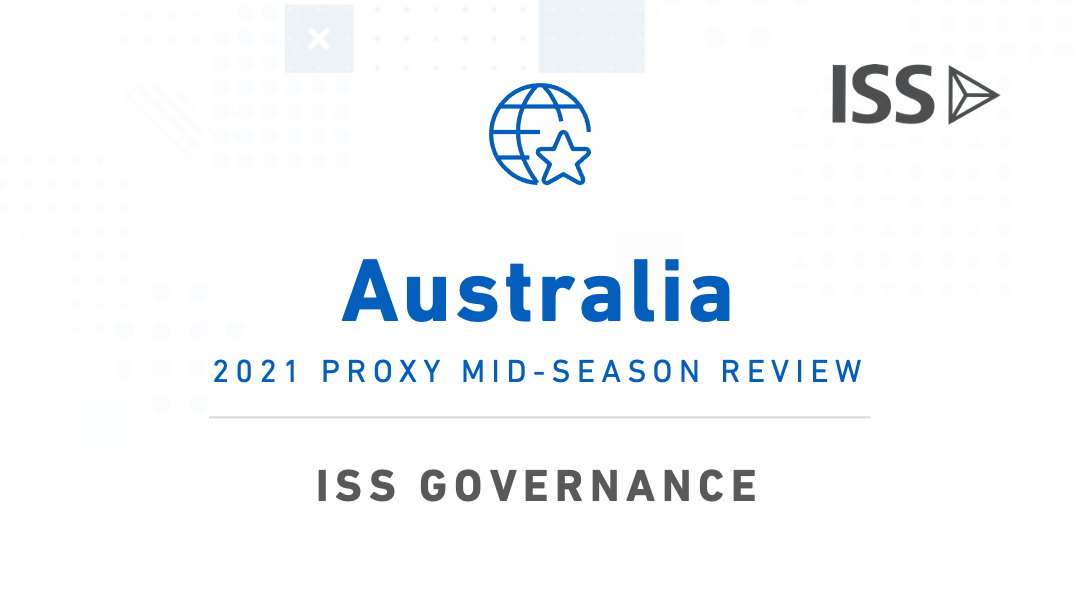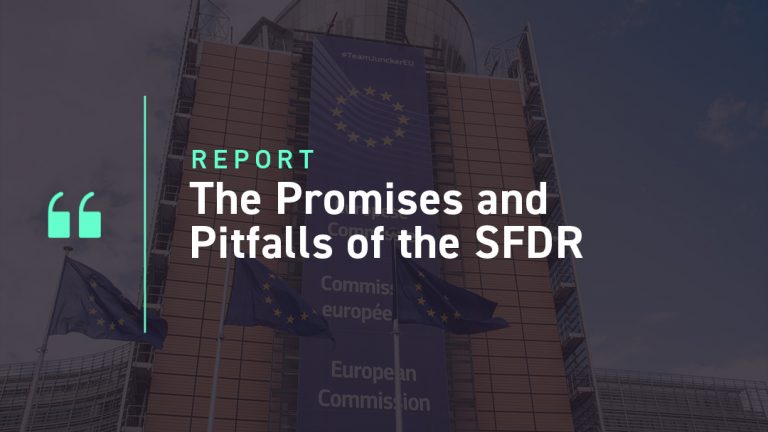Below are key takeaways from ISS’ recently released Australia 2021 Proxy Mid-Season Review. The full report is available to institutional subscribers by logging into ProxyExchange then selecting the Governance Exchange and its Report Center tab and to corporate subscribers by logging into Governance Analytics then selecting the Governance Exchange and the Report Center tab.
KEY TAKEWAYS
- Problematic pay arrangements: Pay-for-problematic issues are again front and center for investors at AGMs this season. Some companies which have benefited from favourable economic and COVID-related events have bonuses and incentives near maximum levels. Other companies which have not fared as well, may feel the upward remuneration pressure in this market, and are likely to have certain problematic practices scrutined by shareholders, including retention awards, time-based long-term incentives, changes in performance measures from objective financial hurdles to more discretionary non-financial measures and misaligned high bonuses with weaker company performance as a result of lower performance hurdles.
- Virtual meetings: Current Australian corporate law requires physical attendance at shareholder meetings. The 2020 temporary modifications to the Corporations Act have been extended by the Australian Government to permit virtual shareholder meetings and electronic communications during COVID-related lockdown and restrictions. The Australian Government is now contemplating an amendment to the law to permit virtual-only shareholder meetings in the normal course if this is expressly permitted in a company’s constitution.
- “Say-on-Climate” and shareholder proposals: Legal precedent has historically prevented non-binding shareholder proposals from being formally voted on at Australian AGMs. A precedent has been established in the 2021 mini AGM season in the acceptance by the boards of four large companies to permit a non-binding “say on climate” resolution to be voted on by their shareholders in 2022.
- Companies pressed by investors and other stakeholders to respond to ESG issues: The trend of companies being asked to take responsibility for a range of ESG issues continues to rise. Higher levels of shareholder support are increasing seen for specific environment-related resolutions, particularly those requesting disclosure of GHG reduction strategies, policies and targets.
- Climate strategy driven corporate transactions: Some companies are beginning to respond to climate risk concerns through corporate transactions to better position themselves for a carbon constrained future.
If you are not a subscriber, please contact sales@issgovernance.com (for institutional investors) or contactus@isscorporatesolutions.com (for corporations) to learn more about accessing bespoke governance research.
By Vas Kolesnikoff, Head of Australia & New Zealand Research




